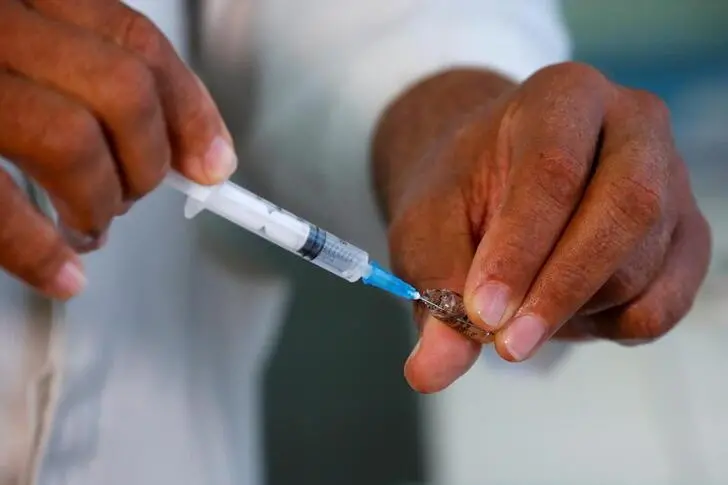PHOTO
Vaccine manufacturer Serum Institute of India is holding talks on fill-finishing Oxford University's R21 malaria vaccine in Ghana, which approved the shot this month, a Ghanaian vaccine expert said on Thursday.
Fill-finishing is one of the final stages of drug manufacturing and packaging.
The vaccine's approval by Ghana and Nigeria was unusual because final-stage trial data has not yet been published and the World Health Organization (WHO) is still assessing its safety and effectiveness.
"As part of the engagement we've been doing to facilitate vaccine manufacturing in Ghana, we've actually facilitated some partnerships between (local manufacturer) DEK Vaccines and the Serum Institute," William Ampofo, secretary of Ghana's presidential committee on vaccine manufacturing and development, told a news conference organised by the WHO's Africa office.
"Serum Institute is actually in Ghana holding talks with DEK Vaccines Limited ... looking at how R21 could be fill-finished and produced in Ghana," Ampofo said.
DEK Vaccines Ltd is a Ghanaian firm that is aiming to start producing vaccines within the next two years.
Mosquito-borne malaria kills more than 600,000 people each year, most of them Africa babies and children.
Childhood vaccines in the poorest parts of Africa are typically co-funded by international organisations such as Gavi, the vaccine alliance, only after getting WHO approval.
Phionah Atuhebwe, a vaccines introduction officer at the WHO, told Thursday's briefing that Ghana and Nigeria had not "jumped the gun" in approving the R21 vaccine as their regulators could review the data as it became available.
"They have systems in place which ... review this data and can grant that approval. However we need for UNICEF to go ahead and procure this vaccine, which is done in most of our low- and middle-income countries, for Gavi to also go ahead and fund this vaccine. And WHO pre-qualification is required," she added.
Vaccines against malaria have taken decades to develop because of the complicated structure and lifecycle of the malaria parasite.
The Oxford shot is the second in recent years to be approved for use. Oxford has a deal with Serum Institute of India to produce up to 200 million doses of the vaccine annually.
(Reporting by Estelle Shirbon and Alexander Winning; editing by Jason Neely)




















